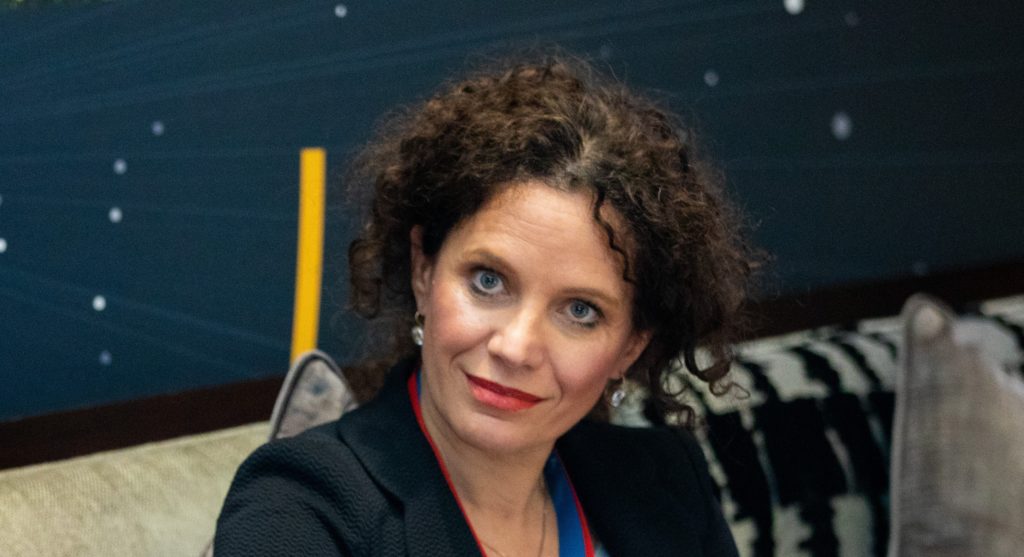Maria Rita Galli is the new CEO of DESFA, the Hellenic Gas Transmission System Operator (TSO). With a deep knowledge of the energy market, in her new position she will assist in boosting DESFA grow as a main player in the energy transition in the Eastern Mediterranean area and position Greece as an energy hub and a key gateway for natural gas in South East Europe.
We spoke to her about the opportunities and challenges she will face in her new position, the impact of the pandemic on business and, coinciding with Women’s Day, about gender equality in the traditionally male-dominated energy world.

Maria Rita Galli, CEO of DESFA
DESFA plays a very important role in the South East Europe energy sector, not only in serving the growing domestic Greek natural gas market, but also in enabling the integration of existing and new strategic import infrastructures (TAP, IGB, the planned Alexandroupolis Floating Storage Regasification Unit –FSRU-, Dioriga FSRU and Kavala UGS) into the National Natural Gas Transmission System, enabling access to the Greek and Balkan markets to new competitive sources of supply. This, coupled with the need to support the effort of the country phase out from lignite in the power sector and the developing of the SSLNG market, underpins an ambitious capex plan in the next few years. At the same time, this big opportunity represents also a challenge, as the company needs to keep pace and even more lead in the field of energy transitions and decarbonization of the gas sector. This challenge, which is common to all EU TSOs, is particularly evident in South East EU, where the gas networks still require significant developments to ensure the establishment of a well-developed and mature infrastructure to support the future integration of green gases.
From the managerial and leadership perspective, I am very lucky to have a team of excellent professionals with deep knowledge of the energy sector in Greece, with a strong culture of excellence in network operation activities, safety and environmental care. My effort will be focused on helping the colleagues to use their know how and competences to tackle the challenges and seize the opportunities of the energy transition, strengthening a cooperative, flexible and inclusive approach to management, which is more and more needed in a world where changes happens at an unexperienced speed and, which is becoming more and more volatile.
“Decarbonization of the gas sector is a common challenge to all EU TSOs”
The COVID–19 pandemic has accentuated and made strikingly evident how the protection of the environment and bio diversity is a mandatory priority for any human activity and even more so for the energy sector. The pandemic has accelerated transformations in the way of working (let’s think about the remote working, digitalization) at a speed that seemed absolutely impossible just a little more than a year ago. Access to reliable, secure and affordable energy has been a key enabler of this transformation, as we are all more and more reliant on well-functioning energy networks. Thus, the debate on the energy trilemma has gained even more centrality. In this, gas networks and gas energy vectors have and will continue to play a key role, in particular in the hard to abate sectors. However, our role and traditional business model needs to evolve and adjust quickly and the reduction of the environmental footprint of our industry shall be central to all our decisions.
In South East Europe, Natural Gas has still a growing role to play in the mid term decarbonization goals, by enabling the phase out of the coal fired generation plants, that both in Greece and the Balkan region still cover a significant stake of primary energy demand. To this end, the access via TAP to new sources of supply, will not only contribute to serve the growing gas needs, but also to increase diversification of sources of supply and therefore enhancing competition and improving affordability.
“Still there is a lot to do, when it comes to executive roles and the real piece of news will be, when a woman CEO in an Energy company will no longer be news”
When I started working in the Oil & Gas sector in 1997, the presence of women and, in particular, of women with a technical degree, who wanted to work in the core business, was extremely low and the few positions open to women were the more corporate and HR ones. I can say that I have seen a great change over these years and, also thanks to the advent of different roles in the energy sector, from pure E&P to more utilities, commercial, trading, R&D and innovation roles, there is an increasing number of women in energy. I can say that from my first weeks in DESFA I have met with many talented and motivated female professionals, many with an engineering and highly qualified background. Still there is a lot to do, when it comes to executive roles and the real piece of news will be, when a woman CEO in an Energy company will no longer be news!